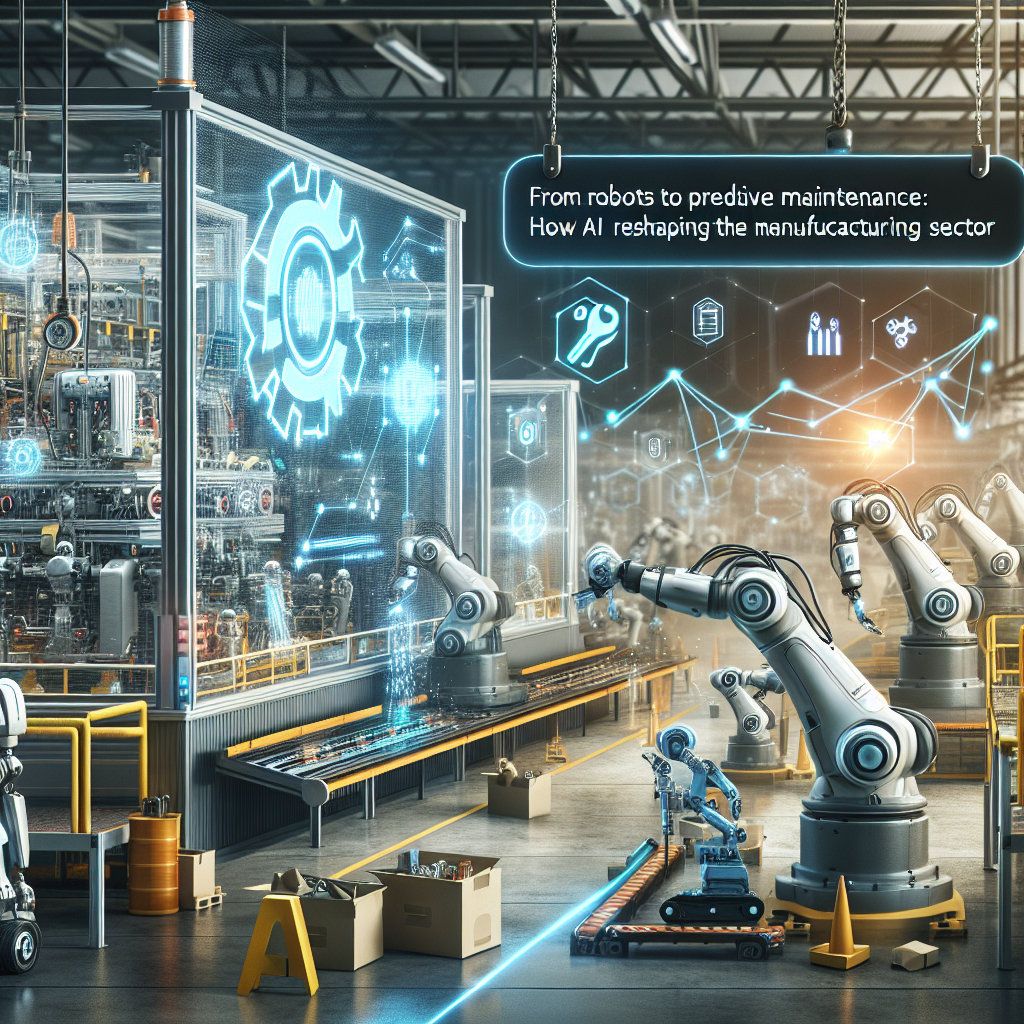The manufacturing sector has always been at the forefront of technological advancements. From the introduction of robots to the implementation of predictive maintenance, the industry has continuously embraced innovation to improve efficiency and productivity. One of the most significant developments in recent years has been the integration of artificial intelligence (AI) into manufacturing processes. AI is reshaping the manufacturing sector by enabling companies to make data-driven decisions, optimize production processes, and reduce downtime.
Robots have long been a staple in manufacturing plants, performing tasks that are repetitive, dangerous, or require precision. However, recent advancements in AI have made these robots smarter and more capable than ever before. AI-powered robots can now learn from their environment, adapt to changing conditions, and make decisions in real-time. This has enabled manufacturers to increase the speed and accuracy of their production processes, resulting in higher quality products and lower costs.
The Role of AI in Predictive Maintenance
Predictive maintenance is another area where AI is revolutionizing the manufacturing sector. Traditionally, maintenance tasks were performed on a predetermined schedule, leading to unnecessary downtime and higher costs. With AI, manufacturers can now predict when equipment is likely to fail and perform maintenance proactively. By analyzing data from sensors and other sources, AI can identify patterns and anomalies that indicate potential issues. This allows companies to schedule maintenance when it is most convenient and avoid costly unplanned downtime.
AI is also being used to optimize production processes. By analyzing data from various sources, including sensors, cameras, and other devices, AI can identify inefficiencies and bottlenecks in the production line. This allows manufacturers to make adjustments in real-time, improving output and reducing waste. AI can also be used to predict demand and adjust production schedules accordingly, ensuring that companies are able to meet customer needs while minimizing inventory costs.
Conclusion
AI is reshaping the manufacturing sector in profound ways. From robots that can learn and adapt to predictive maintenance systems that can prevent costly downtime, AI is enabling companies to operate more efficiently and effectively. By leveraging AI technologies, manufacturers can improve product quality, reduce costs, and increase productivity. As AI continues to advance, we can expect to see even more innovations in the manufacturing sector, further driving growth and competitiveness.
FAQs
What is AI?
AI, or artificial intelligence, refers to the simulation of human intelligence in machines that are programmed to think and act like humans. AI is used in various industries to automate tasks, improve efficiency, and make data-driven decisions.
How is AI used in manufacturing?
In manufacturing, AI is used to improve production processes, optimize supply chains, and enhance product quality. AI-powered robots, predictive maintenance systems, and production optimization tools are just a few examples of how AI is reshaping the industry.
What are the benefits of AI in manufacturing?
The benefits of AI in manufacturing include increased efficiency, reduced costs, improved product quality, and minimized downtime. By leveraging AI technologies, manufacturers can stay competitive in a fast-paced market and meet the evolving demands of customers.
Quotes
“AI is transforming the manufacturing sector by enabling companies to harness the power of data and make smarter, more informed decisions.” – John Smith, AI Expert
#Robots #Predictive #Maintenance #Reshaping #Manufacturing #Sector


